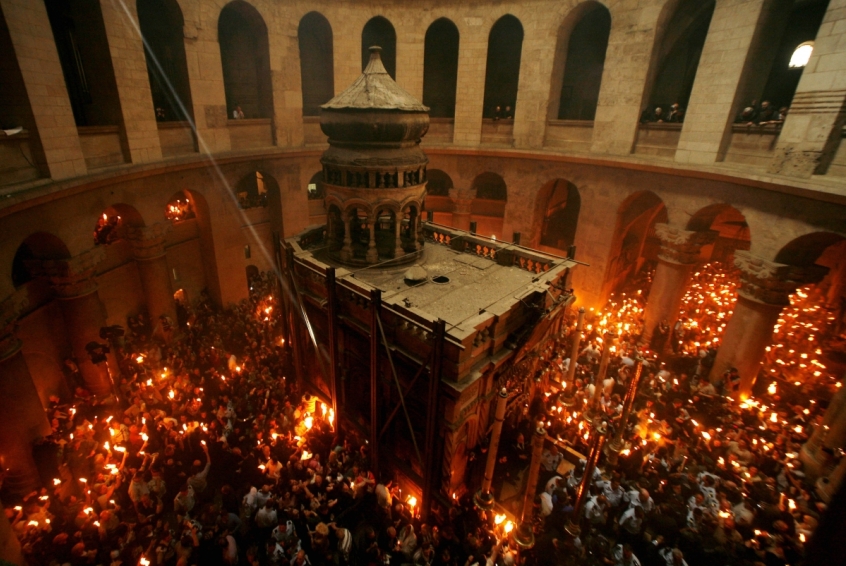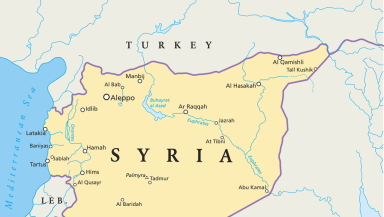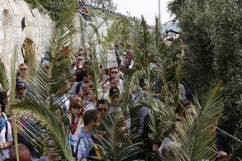Israeli authorities have granted 850 Palestinian Christians living in Gaza permits to travel to Jerusalem and Bethlehem over Easter.

"This is the first time such a large number of Christians from Gaza received permits to travel to the West Bank and Jerusalem," Muhammad al-Maqadma, spokesperson for the Palestinian Ministry of Civil Affairs, told Ma'an News.
The permits, which have been granted to Christians of different ages for a period spanning 45 days, were the result of the "dedicated efforts" by Minister of Civil Affairs Hussein al-Sheikh.
In previous years, "permits were given randomly, and if they don't have them for the whole family, they cannot come," Father Jamal Khader, the rector of the Latin Patriarchate of Jerusalem, said in a press briefing last week.

"Can you imagine some members of the family coming to celebrate in Jerusalem and leaving their family behind? It's not in our tradition, we celebrate together. So we had the experience in previous years when very few came. This year, I'm not sure."
There are around 8,000 Christians living in Jerusalem, 50,000 in the West Bank and fewer than 2,000 in Gaza.
Christians are still facing restricted access to Easter services in Jerusalem, however, according to Yusef Daher, secretary-general of the Jerusalem Interchurch Centre.
Easter has coincided with the Jewish Passover celebrations for the past two years, and while those celebrating the Jewish festival roam freely, there are restrictions on Christian movement.
Israel has placed restrictions on reaching the Church of the Holy Sepulcher for Holy Week and Easter, through a network of police barriers.
"This [restrictions] did not happen ten years ago," Daher told the Catholic Herald.
The Holy Fire ceremony – part of Easter celebrations for both Greek Orthodox and Armenian Christians – involves the sharing of fire that, according to tradition, has been brought from the tomb of Jesus. The flame is passed from person to person by torches. This fire is then sent to various parishes in Israel.
It has been a point of contention over the past decade, and police say the single exit into the plaza means the ceremony is a high risk if fire were to break out.














